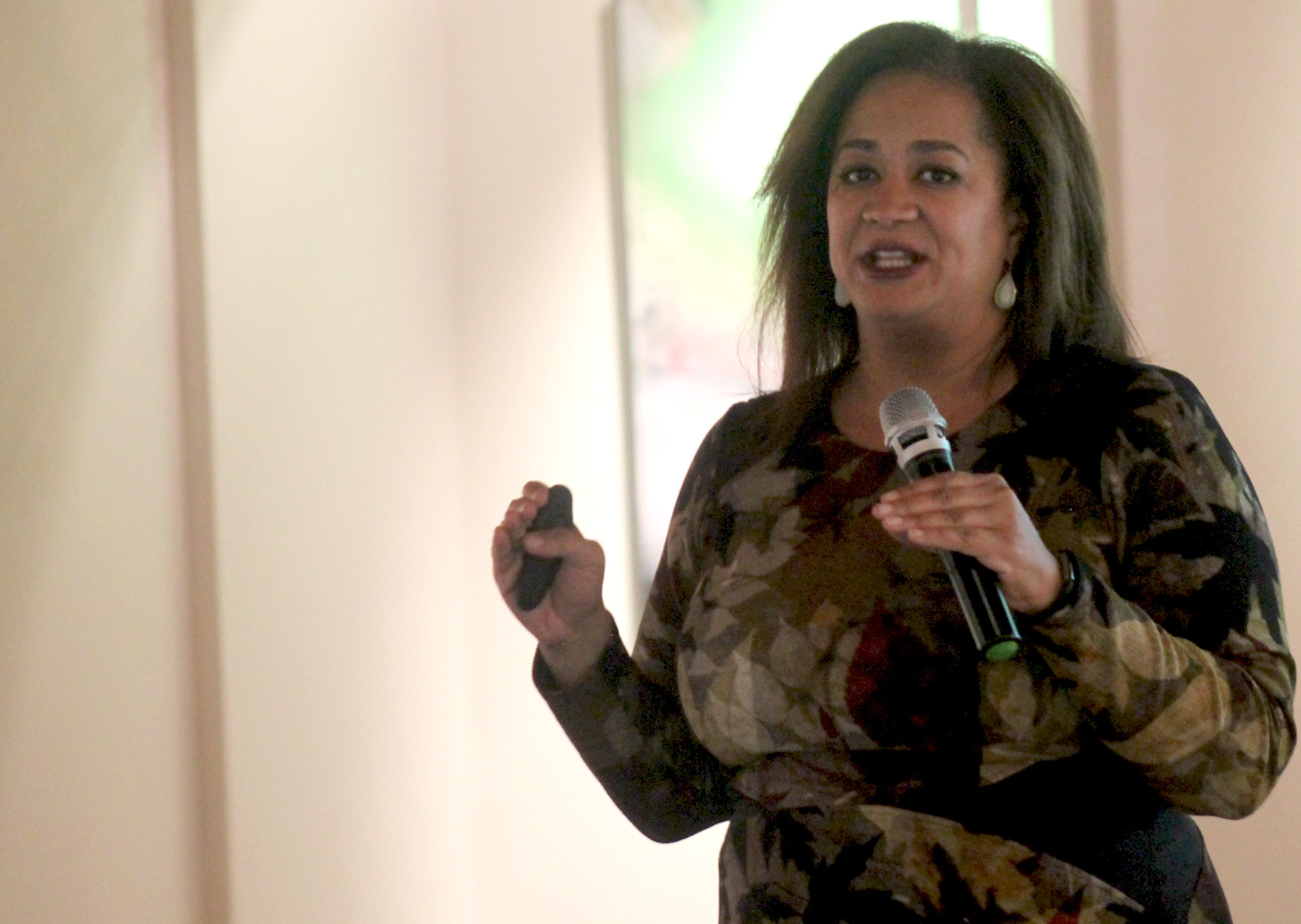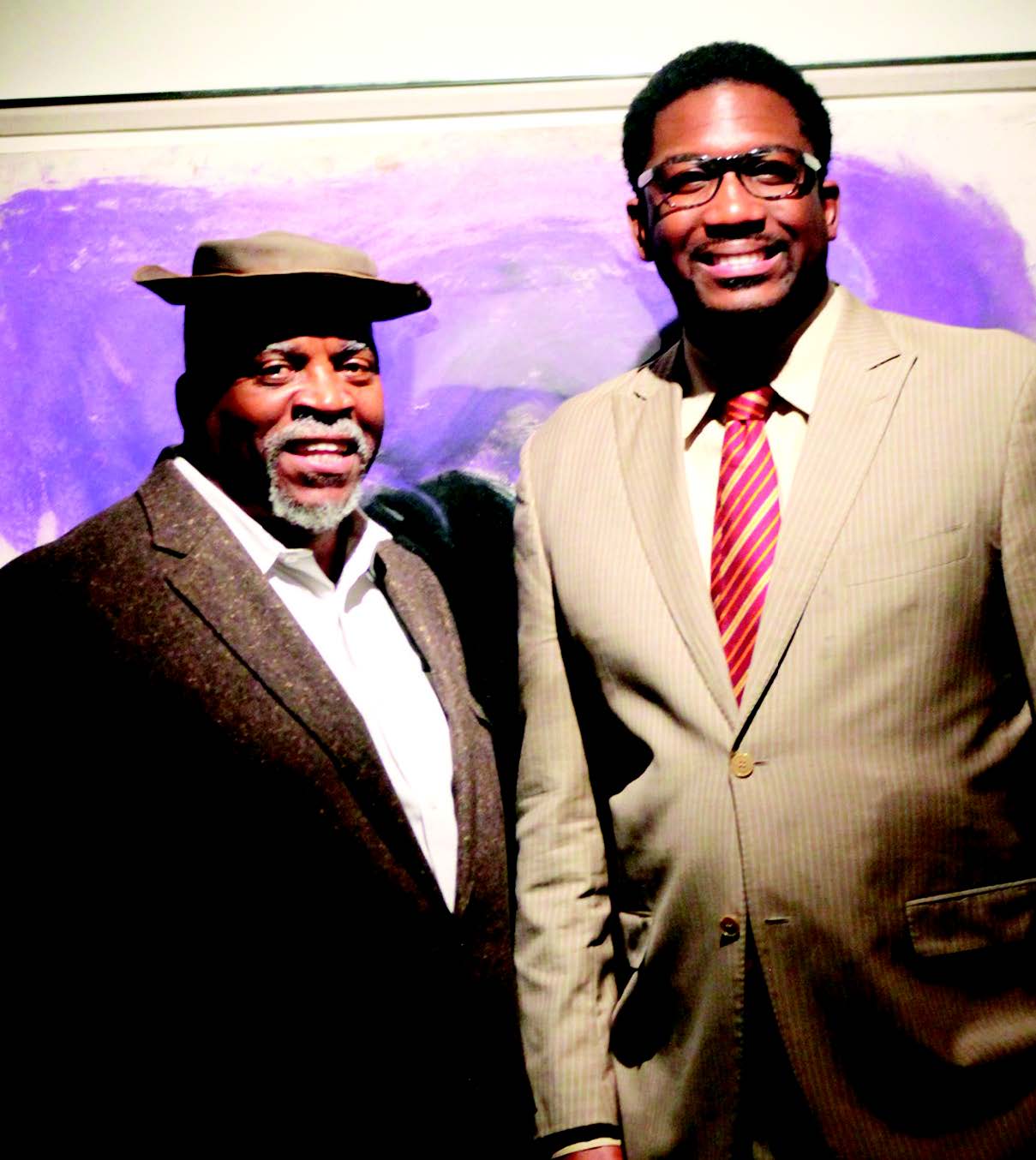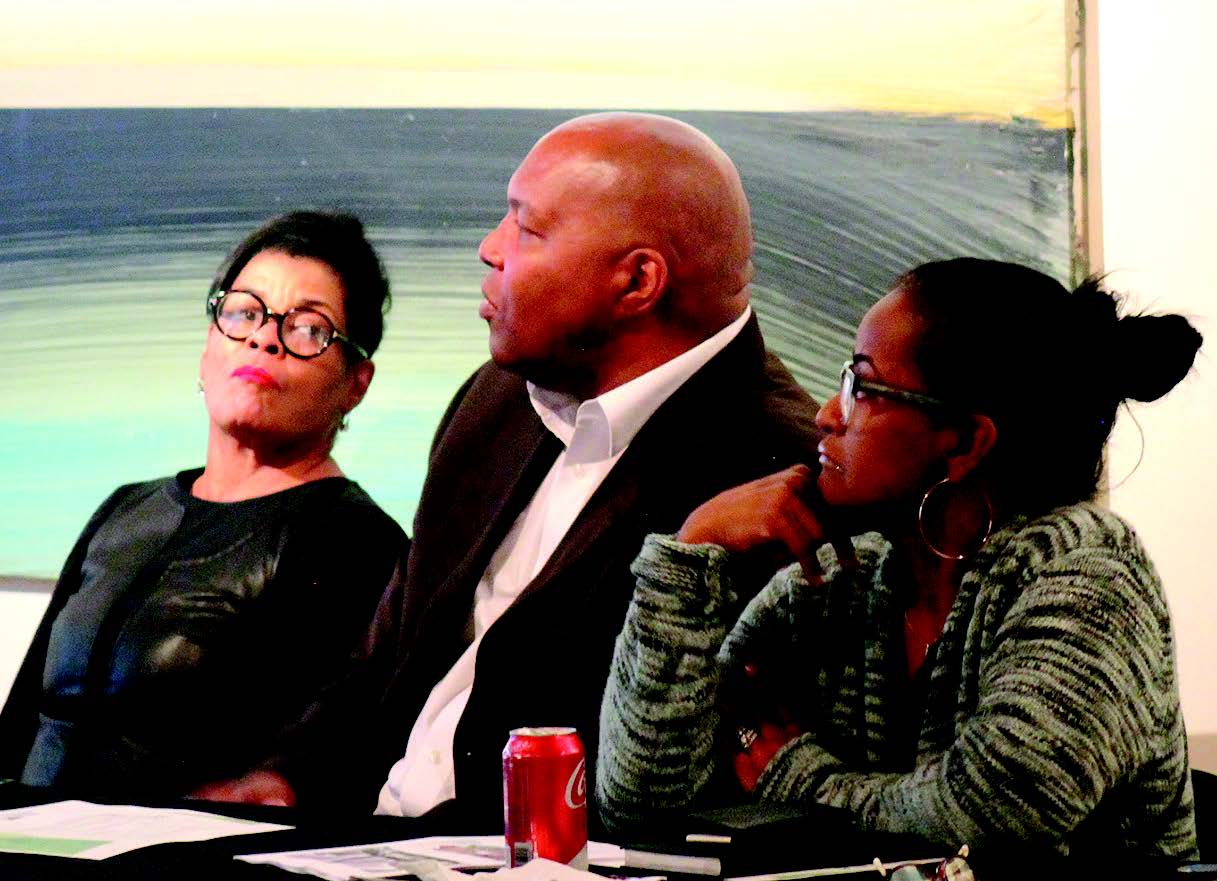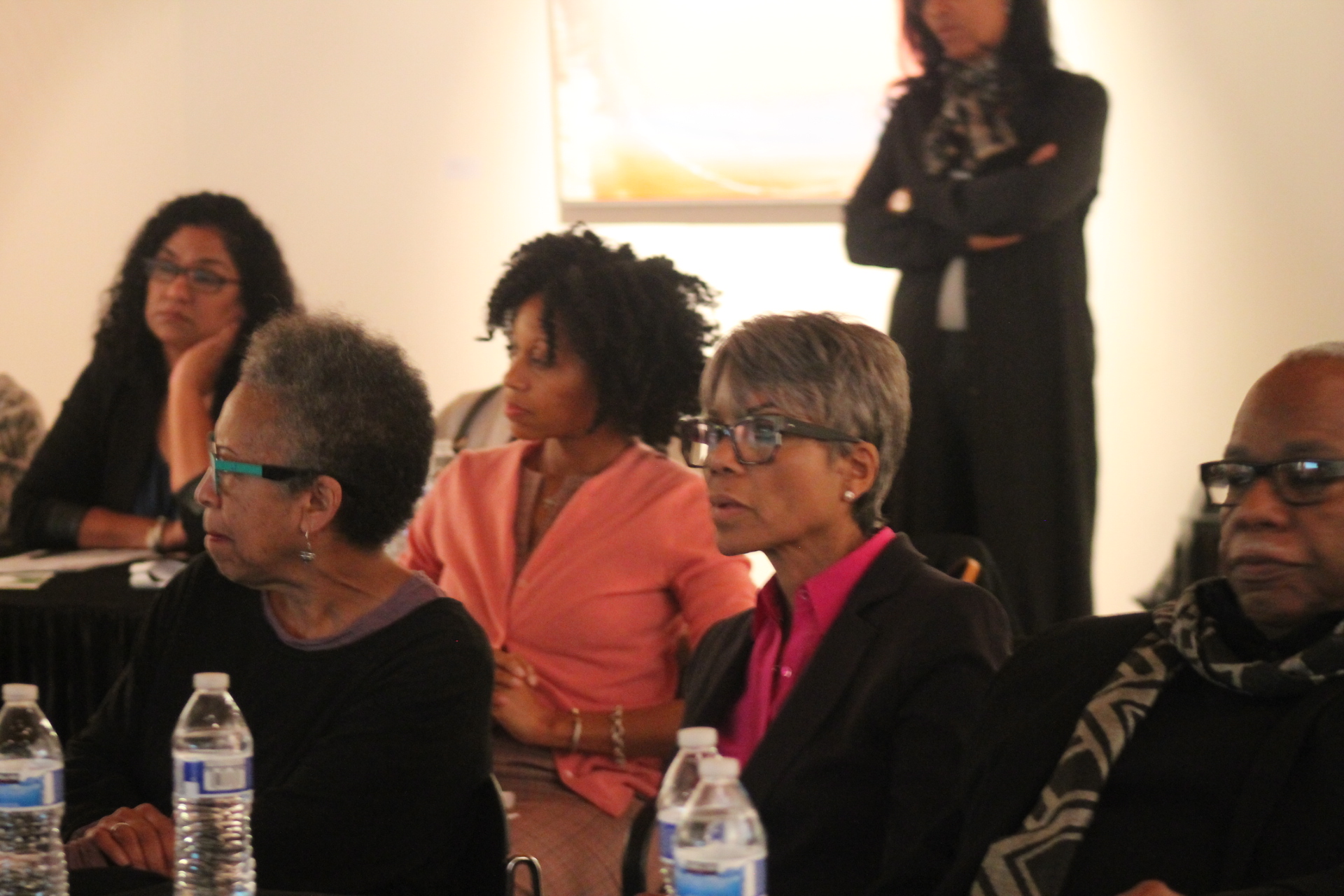
When a distinguished group of Wayne County women determined to explore the economic landscape in Detroit and identify real and tangible opportunities to engage in the rebuilding of Detroit, they enlisted several of the city’s most esteemed and respected visionaries and thought leaders.
The Greater Wayne County Chapter, The Links, Inc. recently presented the first of four key sessions in its Detroit Economic Empowerment Series, held at the N’Namdi Art Gallery located at Forest and Woodward Ave., aka Midtown.
The Links, Incorporated, is a premier organization of more than 12,000 civically savvy African American women, with 270 throughout the United States, the Bahamas, Germany and South Africa. The mission of the organization is to promote and engage in educational and cultural activities in order to enrich the lives of African Americans living and working in the communities they serve.
Following GWCC’s Gina Coleman’s welcome and introduction of guest speakers and presenters Anika Goss-Foster, executive director of Detroit Future City, and Rod Miller, president and CEO of the Detroit Economic Growth Corporation, the economic experts and heavy hitters launched into a provocative discussion of the possibilities for improved quality of life for Detroiters outside the growth spurt areas and the potential for long term sustainable growth throughout Detroit.
“What I love about this session — Detroit’s Vision and Economic Opportunities – Today, Tomorrow and Beyond — is that this is a real opportunity for African Americans in Detroit with wealth and position to really understand and engage in what’s happening in Detroit … we hear a lot about gentrification, and all to often gentrification really starts with ownership,” explained Goss-Foster. She stated that land use strategies were a cornerstone of DFC’s work to impact life in local communities as well as the City of Detroit. “One of the things to keep in mind is that we have to be able to think about land in Detroit and development in Detroit in a much broader way than the one dimensional way we’ve been thinking about it in the past” she said. “We used to really think every piece of land in every

single neighborhood could have the exact same type of development. If you had the financing you could build it. But in fact what we now know that is not the case,” she added referencing city blocks with only two or three occupied homes on them. Goss-Foster suggested that a more palatable approach for residents and realistic approach for developers is to explore other uses for remaining tracts of land, including community parks, gardens and reforestation. On Detroit’s eastside, communities near E. Warren Ave. have developed a master plan for neighborhood development which incorporates innovative land use plans with assistance provided by DFC.
Detroit Future City is an independent nonprofit organization governed by an independent board of directors and funded by the Kresge Foundation, Erb Family Foundation, John S. and James L. Knight Foundation, Michigan State Housing Development Authority and Americana Foundation.
Goss-Foster cited statistics for small business creation and growth in Detroit, which she called disturbing. “According to The Small Business Association, 11 percent of businesses in Detroit with $50,000 in revenue or more, and more than two employees make up the entire [small] business population in Detroit. That is woefully low,” she lamented.
Roderick Miller, president and CEO of the Detroit Economic Growth Corporation shared Goss-Foster’s concerns regarding community and economic development. Under the tenure of former CEO George Jackson, and continuing into Miller’s administration, DEGC has assisted Detroit Future City gather resources and developed a team to connect people to the DFC Strategic Framework plan.
“Detroit, the comeback city,” Miller declared, “and the city is clearly in a state of transition. For the first time in nearly 60 years the population is stabilizing. … we are still a black city, but the demographics are definitely changing, and that has tremendous implications,” he said.
DEGC is a private, non-profit organization, which partners with City of Detroit government and agencies as well as other investors and developers to bring new companies and investments to the city.
Miller said that the DEGC had outlined seven points of priority in overcoming Detroit challenges:

- High levels of poverty
- Reputation challenges
- Struggling education system and low levels of attainment
- Population decline every year since 1950 from 1.8 million to 700,000
- Significant infrastructure investment needed
- Broken Institutions
- Historic lack of good governance
“The reality is that if we go back to 1954, Detroit was the strongest economy in the country. It had the highest levels of homeownership, highest levels of income, it put the world on wheels, and there was Motown,” Miller said. “It didn’t matter where you came from, in Detroit you had an opportunity for a strong middle class lifestyle.”
Listing the challenges which resulted in serious decline in quality of living and the number of people residing in Detroit, Miller said the DEGC not only works diligently to return the city to it’s former levels of economic success, but to exceed them.
“We first have to grow the population. It doesn’t matter how you cut it, you can’t build a world class economy with a population of less than 700,000 people,” said Miller. “To sustain the long-term viability of the city we have to grow the economy and make sure that local people who have been here have opportunities to participate in a meaningful way … One of the things that’s really critical is to build on what we already have, and we already know how to do automotive. So we have to build on that while we identify new opportunities.”

GWCC is comprised of nearly 60 prominent women leaders and key stakeholders in Detroit’s future including: Yolande Herbert Henderson, Karen Heidelberg Barnwell, Tanya Heidelberg-Yopp, Vera Heidelberg, Denise Page Hood, LaVonda Jackson, Gina Coleman, Denise Page Hood, Faye Nelson, Carmen N’Namdi and Linda Swanson, among others.